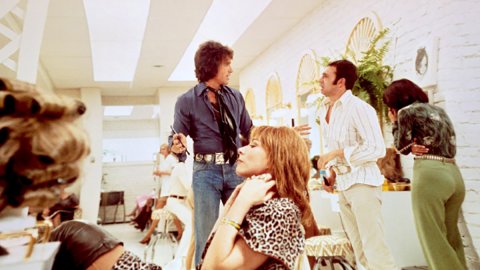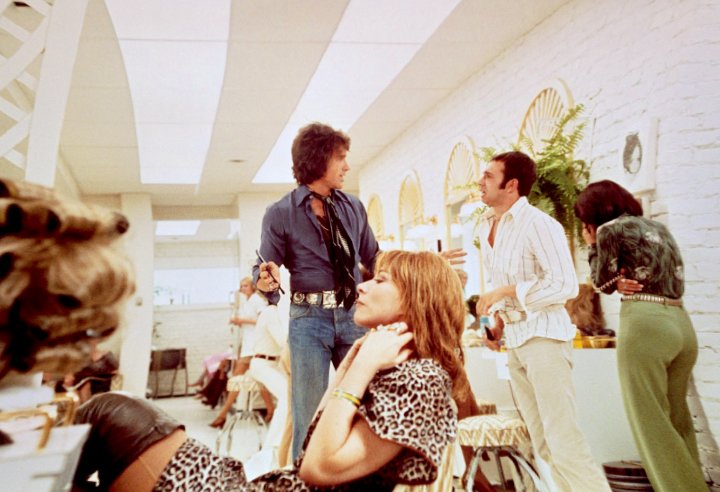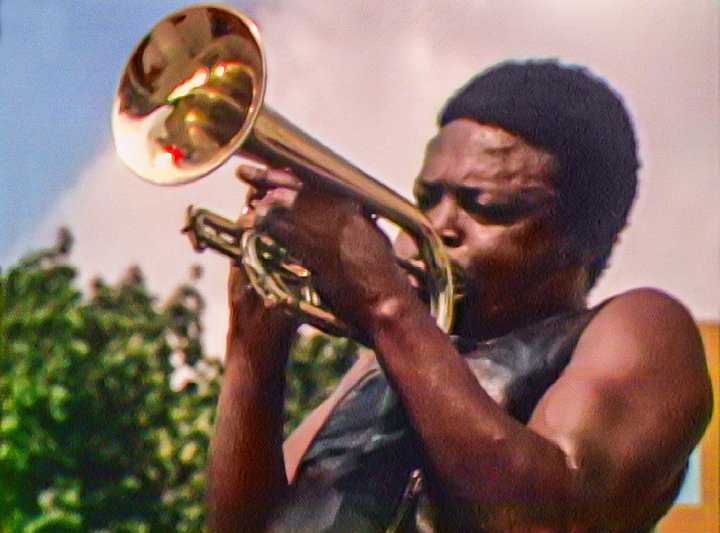
The Sound of Cinema Rediscovered
Posted on Tue 25 July 2023
Guest writer Sean Wilson explores some of the soundtrack highlights & musical motifs of this year's Cinema Rediscovered programme.
It’s no secret that in the mid to late 1960s, traditional Hollywood norms were in trouble (analogous with today, perhaps?). On an aesthetic level, this was evident in the soundtrack shift from lavish non-diegetic orchestral scores to pop and rock needle drops designed to draw in a younger audience, a trend that continues to this day. The notion of pop music as a narrative device is very much on display in the seventh annual Cinema Rediscovered festival.
Amidst the bevy of 4K restorations, discussions and rediscovery of long-lost gems, a linking theme is the importance of music in sculpting our audio-visual experience. On Wednesday July 26th, the festival opens with a 4K restoration of Sofia Coppola’s cult teen drama Virgin Suicides (1999), introduced by critic Hannah Strong. The clarity wrought by the 4K re-release throws into sharper focus the ethereal nuances of the score from French music duo AIR. In line with the ‘60s principle, the group’s currency with its target audience is used to bypass the intellect and go straight for the heart, conjured a propulsive yet haunting musical account of an eerie modern tragedy.
On July 29th, audiences will be treated to a restoration of cult favourite Hal Ashby’s 1975 drama Shampoo. Set on the day of the US Presidential election in 1968, Shampoo ‘operates as both a sharp critique of the excesses of America in the late 1960s and a commentary on the duplicity of society in the mid-1970s’. To that end, the music tracks in a who’s who of influential artists designed to reflect the movie’s historical context while also conjuring a sense of emotional immediacy. This includes The Beatles, The Beach Boys and Jimi Hendrix – emblems of the epochal era that Shampoo recreates with such fidelity and nuance.

Also not to be missed is the screening of Robert Altman’s classic 1970 Vietnam War satire M.A.S.H. (also July 29th), which imports renowned jazz artist Johnny Mandel to graft blackly comic, tempo-shifting craziness onto one of the darkest periods in modern American history.
On the same day that Shampoo and M.A.S.H. are screening, there’s also the 4K restoration of the 1974 comedy-drama Claudine to be enjoyed, showing as part of the festival strand ‘Look Who’s Back: The Hollywood Renaissance and the Blacklist’. The movie stars Oscar nominee Diahann Carroll as ‘a black working-class mother struggling to make ends meet’, her character ‘offering an antidote to the testosterone driven star-turns of the blaxploitation cycle’. The Claudine soundtrack enlists several of the most reputable soul and Motown artists to have ever topped the charts, including Curtis Mayfield and Gladys Knight and the Pips.
A further celebration of artists of colour comes in the expanded screening of the Oscar-winning documentary Summer of Soul (also July 29th), held in the Galleries car park in Broadmead. Questlove’s account of New York’s ‘Black Woodstock’ festival, held in 1969, gathers a dizzying and exhilarating array of authentic concert footage showcasing some of the greatest musical artists ever to walk the stage. This ranges from Stevie Wonder to Nina Simone, Mavis Staples to The Chambers Brothers. The screening is followed by a funk and soul afterparty showcasing homegrown Bristol DJs and musicians.

On July 30th, audiences will be treated to the dreamy eclecticism of the score for Lynne Ramsay’s haunting Morvern Callar (2002), starring Samantha Morton. This intuitive account of a dangerously impulsive Scottish supermarket worker is built around a tapestry of artists ranging from The Velvet Underground to Aphex Twin and Nancy Sinatra, a suitably unpredictable mix that ably reflects the eponymous Callar’s mercurial mindset.
That said, showcases of landmark original scores are hardly thin on the ground. John Barry’s famously lilting harmonica theme for Midnight Cowboy takes pride of place during the classic movie’s screening on July 29th. Barry’s capacity for melancholic and piercing melody is put to excellent use in John Schlesinger’s provocative and controversial account of shifting moral standards, the score grafting palpable sadness onto the film’s depiction of urban alienation.
On the same day, noted jazz trumpeter and film composer Terence Blanchard, a regular collaborator with director Spike Lee, invests the underrated Samuel L. Jackson Deep South drama Eve’s Bayou with pathos and geographical specificity. Rounding things off on July 30th, British composer Oliver Coates’ elegiac and wrenching cello melody for Aftersun promises to wash over the audience like a tide, suggesting the ebb and flow of memory that drives Charlotte Wells’ remarkable feature film debut.
All in all, Cinema Rediscovered 2023 acts as a microcosm of what music can do to both support and elevate the artistry of cinema, inherent in a range of movies famous, infamous and little-seen.